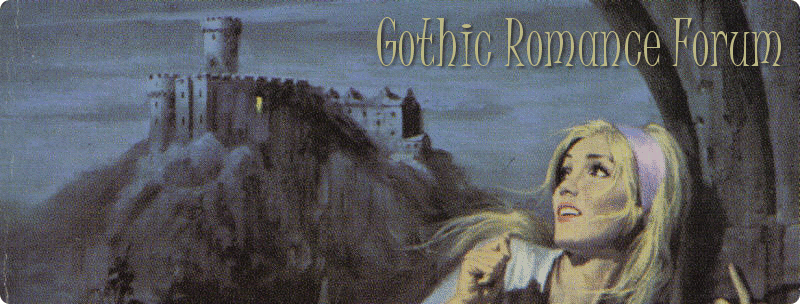Posts: 233
Threads: 77
Joined: May 2007
Reputation:
3
Alternatively, we can call it Right vs. Wrong. I think it would be best for me to begin with a few thoughts and ask that any others who join in to continue it from there.
If we start with the early Gothics, we find that the main theme dealt with righting a wrong. We can discuss how this theme has developed into today's Gothic novels, using specific examples along the way.
The first Gothic romance that we are aware of is "The Castle of Otranto". At the very beginning we are introduced to our villain, who is aware that he is a usurper. Thus, he is prompted to correct his wrongdoing with a scheme that would ease his conscience. The fact that he is somewhat bothered by his conscience suggests that he is not an altogether evil person. However, he does show his evil side later.
Posts: 71
Threads: 23
Joined: May 2007
Reputation:
0
Yes, then you contrast his character with his daughter and prospective daughter-in-law, both of whom are extremely innocent. In my opinion, the daughter is much more innocent and the author purposely makes this so, in order to present polar opposites within the family. You have the mother, who is essentially a good person and quite religious but is ruled so much by her husband that she is willing to do what would have been considered wicked back in the medieval age. The Catholic Church was strong during this period, but of course, there were many who opposed their rule. Our villain reminds me somewhat of Henry VIII, who decided to make up his own rules.
These early Gothics tended to make characters essentially all good or all bad. There was very little "gray". Those who were bad were motivated by greed, never giving thought to anyone else. Our villain thought he could correct his wrongdoing but it wasn't really motivated by conscience. I believe he was motivated by the thought that if he could continue his line, it would justify his position, rather than make him a usurper.
Posts: 106
Threads: 16
Joined: Oct 2007
Reputation:
0
Unfortunately, I've never read The Castle of Otranto. I'll have to remedy that!
I do agree that early Gothics tended to make characters all good or all evil. One of the themes of later Gothic romances though is the changing face of the hero. The heroine, and the reader, don't really know where the hero stands until later in the book.
Examples...
1. Mr. Rochester in Jane Eyre. What is up with this guy and what is he hiding in the attic? Did he kill his wife or what?
2. Max de Winter in Rebecca. Same thing. Did he or didn't he kill his wife? Who is he exactly?
3. Erik in Phantom of the Opera. Crazy killer one minute, heart-tugging lover and pitiful outcast in the next.
And, in each case, an older hero is paired with a young, inexperienced girl.
Posts: 233
Threads: 77
Joined: May 2007
Reputation:
3
Since Desdemona has not read "The Castle of Otranto", I don't want to say anything that might spoil the plot. However, in discussing good vs. evil, I want to comment on the fact that the author of this book seemed to imply that evil is hereditary. Therefore, the innocent was sacrificed to atone for wrongdoings.
The idea that evil is hereditary survives into 20th century Gothics. However, this idea takes on a different twist. It is one that is imagined or assumed, rather than real. Many times the hero is portrayed as evil, coming from a long line of evildoers, but is actual fact, the good guy.
Posts: 106
Threads: 16
Joined: Oct 2007
Reputation:
0
I wonder if we should take a book that we've all read and discuss the theme of good and evil in that book. That way we can discuss at leisure without worrying about spoilers. We can also focus the discussion more.
I can't find the post now, but I believe someone wanted to discuss Rebecca in one of the other threads. I've read Rebecca and would enjoy discussing it.
What do you all think? Or are there other suggestions?
Posts: 79
Threads: 25
Joined: Jun 2007
Reputation:
0
If we want to have our own Gothic Literature "class" perhaps we should make a list of books to read, then we can all discuss. For example, given what has already been written, we should have "The Castle of Otranto", "Jane Eyre" and "Rebecca" on the syllabus. Any other suggestions are welcome. Then we can discuss the various themes using those books as our reference points. What do others think?
Posts: 106
Threads: 16
Joined: Oct 2007
Reputation:
0
Sounds like fun! I'm in for it!
Posts: 79
Threads: 25
Joined: Jun 2007
Reputation:
0
First, we'll need to have a list of books. I'll start a new thread and solicit suggestions for the syllabus. We can even use some of the suggestions from our "Best Gothics List". How many should we use?




